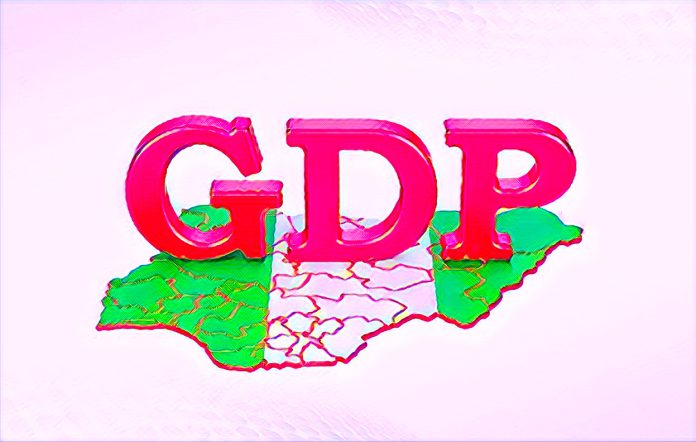Key Points
- Nigeria’s GDP fell by over 50% in dollar terms.
- Currency devaluation threatens Nigeria’s $1 trillion economy goal.
- South Korea’s steady growth contrasts Argentina’s unsustainable boom.
Nigeria’s GDP in 2024 faces a steep decline, fueled by currency devaluation, threatening the $1 trillion economy goal.
Nigeria’s GDP drops sharply in dollar terms, a worrying trend.
Based on the current exchange rates for the first and third quarters of 2023 and 2024, Nigeria’s GDP decreased by 52.63 percent in dollar terms, according to recent statistics from the National Bureau of Statistics (NBS).
The first three quarters of 2023 saw an average exchange rate of N580.96/$, while 2024 saw an average of N1,427.73/$. The total nominal GDP of Nigeria was N164 trillion for the first three quarters of 2023 and N190.92 trillion for the same time in 2024.
According to a BusinessDay research, the GDP decreased by over 50% over that time. In 2023, the GDP for the first three quarters was $282 billion, whereas in 2024, it was $134 billion.
But President Bola Tinubu is still hopeful. The administration has cited the 3.46 percent GDP growth rate announced by the NBS on Nov. 25, 2024, as evidence of progress. The growth demonstrates the president’s dedication to bolstering the economy and raising Nigerians’ standard of living, according to Sunday Dare, his special assistant on media and public relations.
A closer look at Nigeria’s modest GDP growth rate.
On closer inspection, however, the scenario becomes more complex, resembling the story of two economies and two pupils.
One kid improved by 10 percent, from an initial score of 40 percent to 44 percent. The student’s status did not significantly change, and they continued to fall into the “Pass” group despite their growth.
Another student, meanwhile, saw a modest improvement of 7.7 percent, going from a beginning score of 65 percent to 70 percent. But by moving the student up from “Good” to “Excellent,” this modification significantly changed their academic ranking. South Korea and Argentina can be compared in a similar way.
Argentina was one of the richest countries in the world during the beginning of the 20th century. Fueled by a worldwide boom in commodities and robust local demand, it attained an average annual GDP growth rate of 18 percent between 2003 and 2008.
South Korea’s economic development, on the other hand, has been far more steady but less dramatic. The economy of South Korea expanded at an average yearly pace of 4 to 6 percent between 2000 and 2014. Between 2000 and 2014, its GDP increased from $576 billion to $1.4 trillion.
With the help of investments in infrastructure, industrial expansion, and technology, it topped $1.8 trillion by 2024.
Similar to a student whose small percentage improvement results in a substantial shift in status, South Korea’s economy went from being low-income to high-income due to its consistent expansion, even though it was numerically lower than Argentina’s throughout several times.



